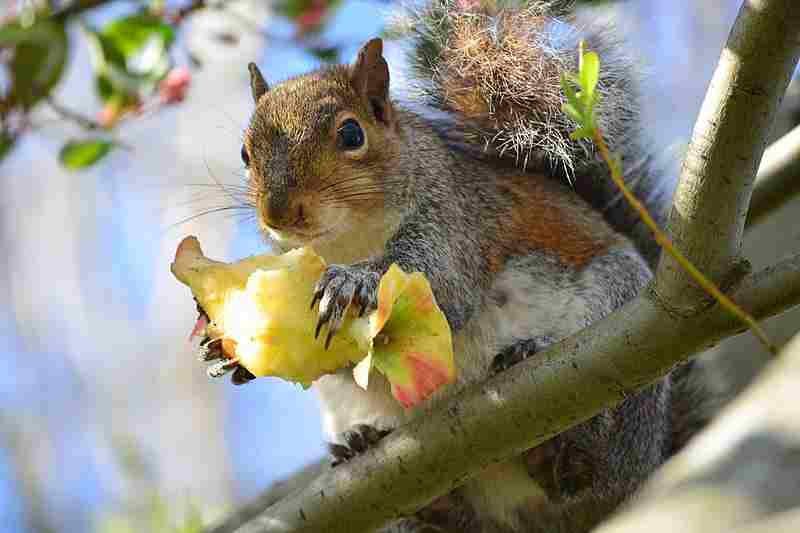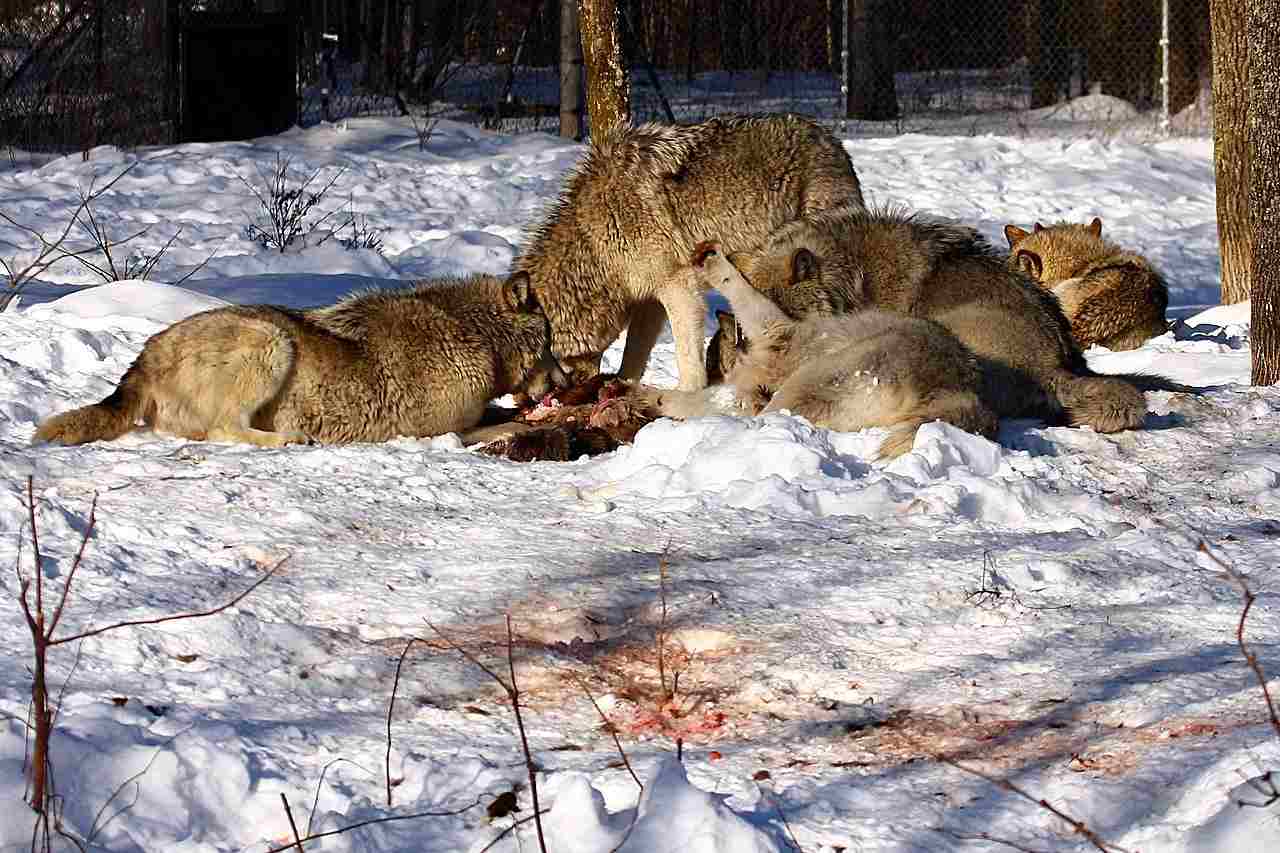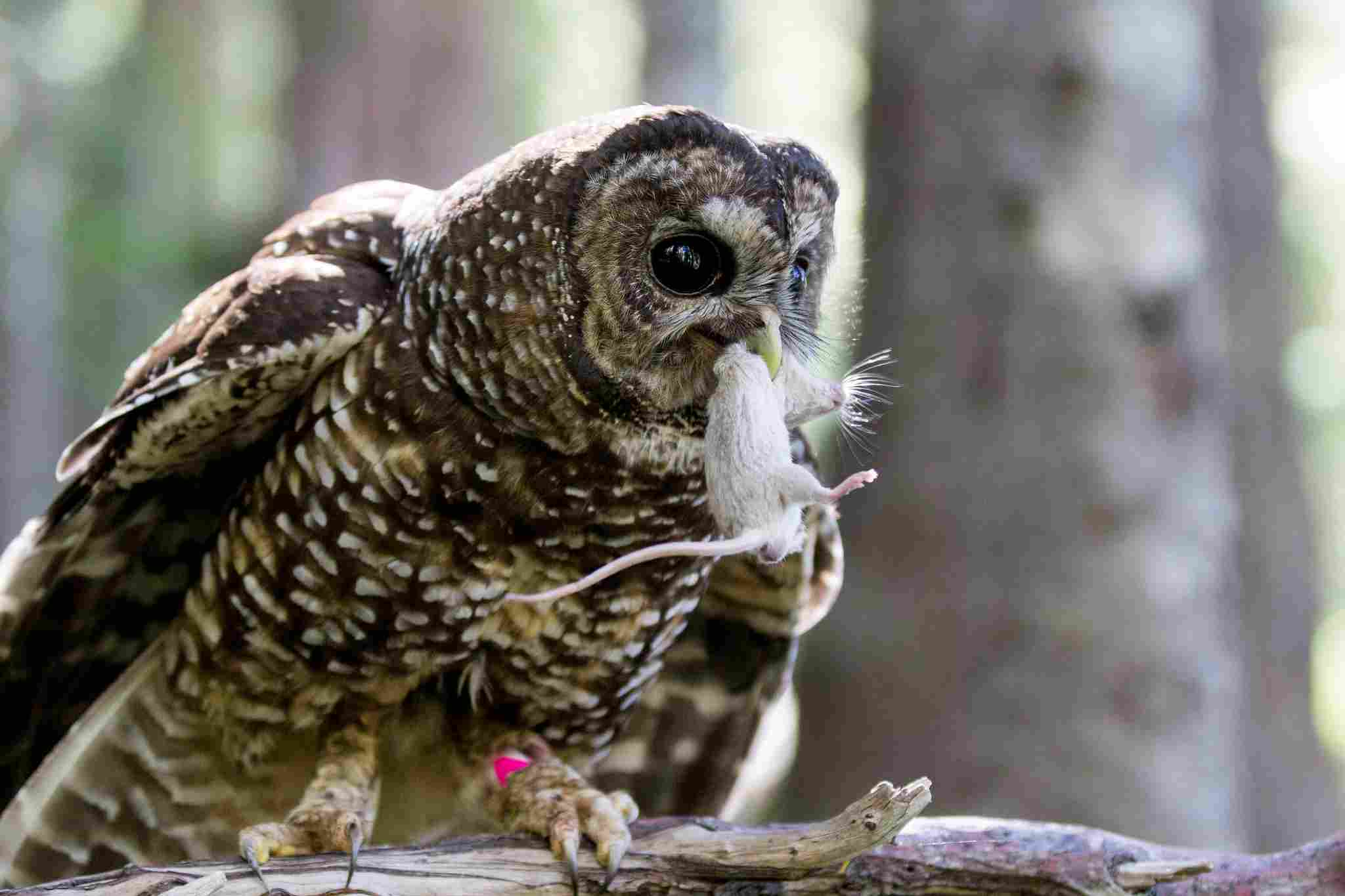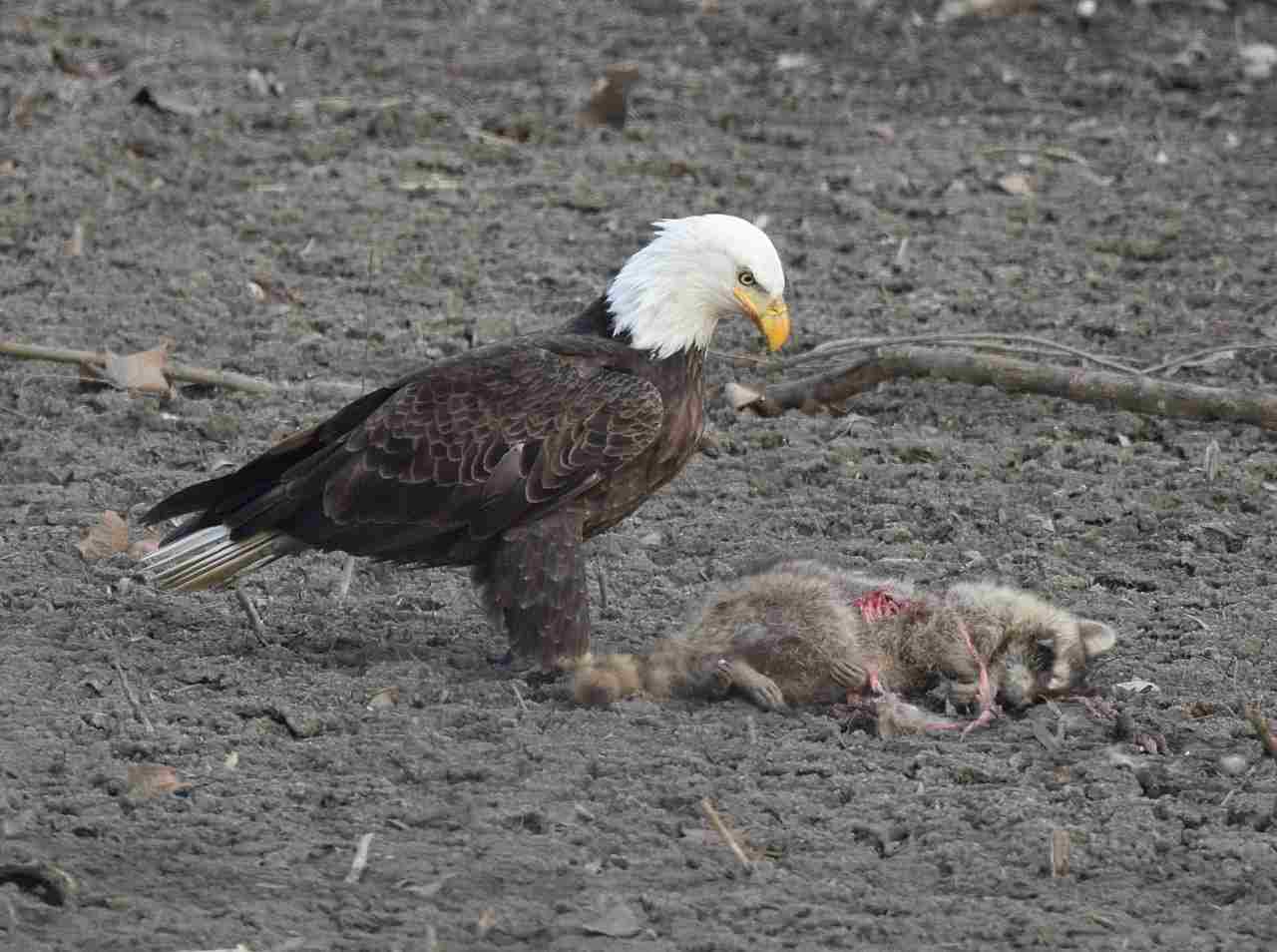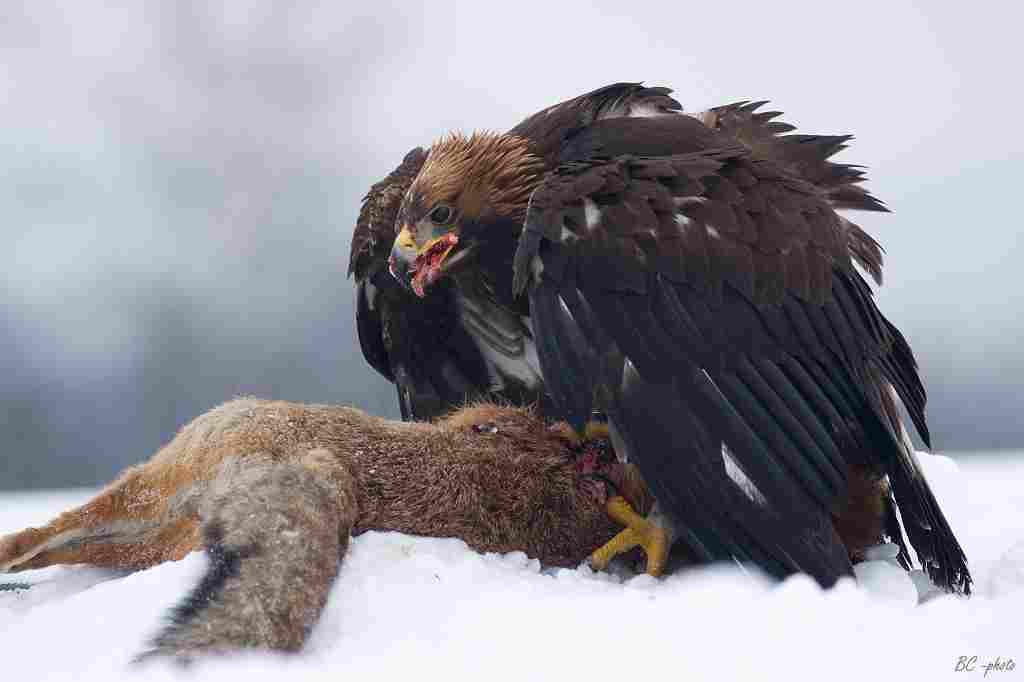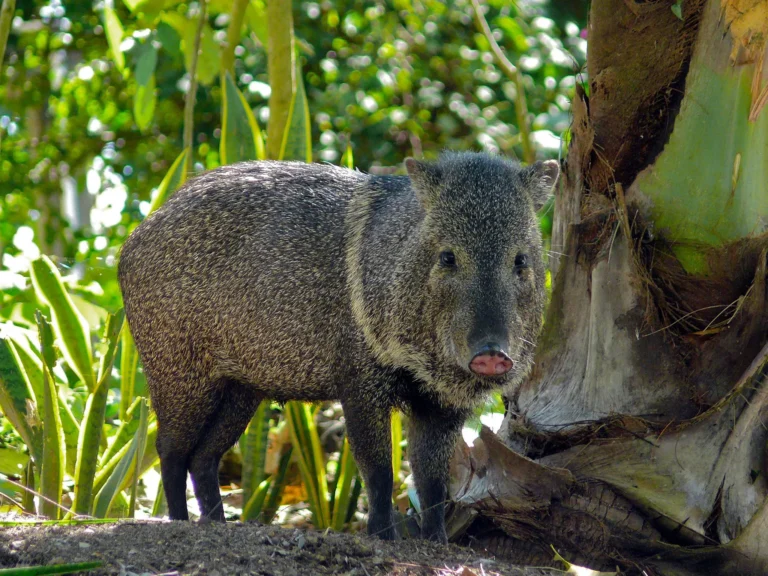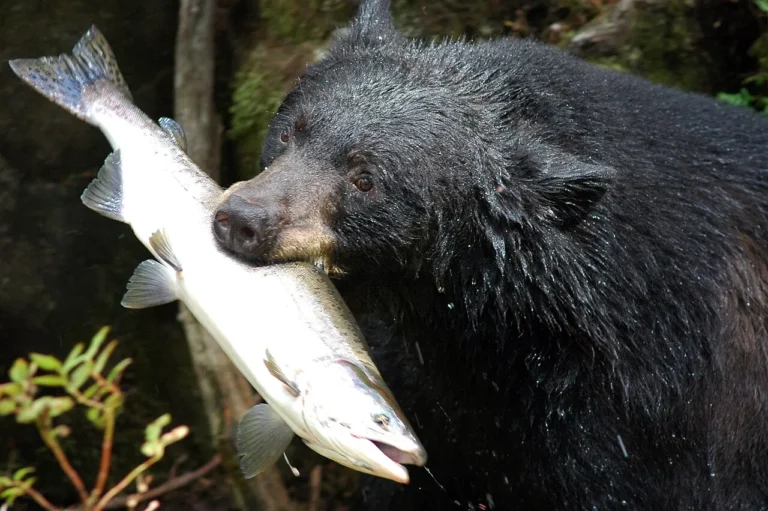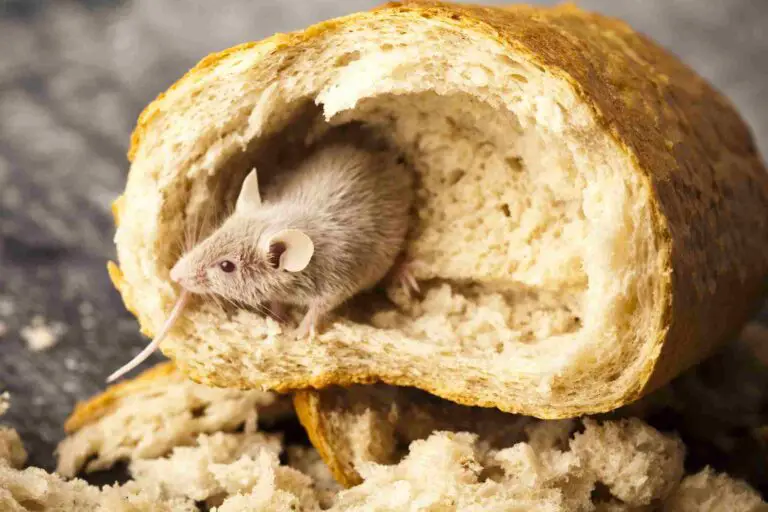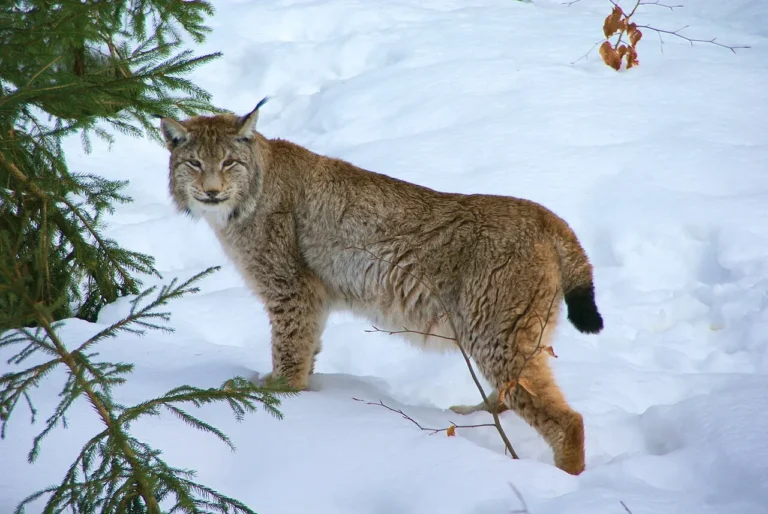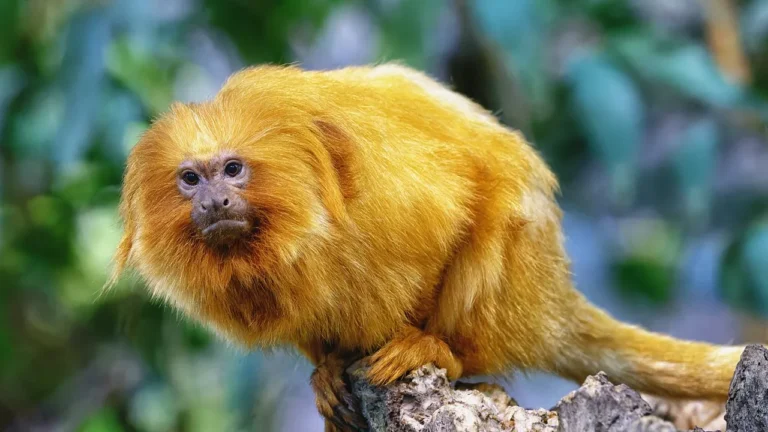Are Squirrels Cannibalistic? An Overview of Squirrel Cannibalism
Some squirrel species like North American red squirrel, and grey squirrel, are cannibalistic and have been observed preying on the infants or pups of other squirrels, even within the same species population or community.
This phenomenon is known as squirrel cannibalism or infanticide. It is discussed in the sections below.
Are Squirrels Cannibals?
Yes, squirrels are cannibalistic, as they can feed on the young (or even occasionally; vulnerable adults) within their populations. This behavior may seem shocking, but it is not uncommon among certain squirrel species. Let’s explore the reasons behind squirrel cannibalism and gain a better understanding of this intriguing phenomenon.
One of the main reasons for squirrel cannibalism is the scarcity of preferred food sources. Squirrels are primarily herbivores, relying on nuts, seeds, fruits, and vegetation for their diet. However, when these food sources become scarce, squirrels may resort to cannibalism as a means of survival. By consuming the young or weak members of their own population, squirrels can ensure their own survival and the survival of the stronger individuals.
Territorial behavior is another factor that can lead to squirrel cannibalism. Squirrels are highly territorial creatures, fiercely defending their territories from intruders. In some cases, when a squirrel from a neighboring territory ventures into another squirrel’s territory, it may be attacked and killed. This territorial aggression can extend to cannibalism, as the defending squirrel may consume the intruder’s remains.
Interestingly, squirrel cannibalism can also be a part of their mating strategy. During the mating season, male squirrels may engage in aggressive behavior to establish dominance and secure mating opportunities. This aggression can sometimes escalate to the point of cannibalism, where males may kill and consume the young of rival males. By eliminating potential competitors, the dominant male increases his chances of successfully mating and passing on his genes.
While cannibalism is more commonly observed in live prey, there have also been instances where squirrels have been observed consuming dead squirrels. This behavior is often driven by the scarcity of food or the need to scavenge for resources. However, it is important to note that this behavior is not as prevalent as cannibalism of live prey.
When it comes to ground squirrels, cannibalism is generally less common compared to tree-dwelling squirrels. Ground squirrels typically have access to a more abundant food supply, reducing the need for cannibalistic behavior. However, in certain circumstances, such as overcrowding or scarcity of resources, ground squirrels may resort to cannibalism as a means of survival.
Reasons for Cannibalism in Squirrels
1. Scarcity of Preferred Food Sources
Cannibalism in squirrels is often associated with the scarcity of preferred food sources. While it may seem counterintuitive, cannibalism can occur even when food is plentiful. However, when the availability of their preferred food sources becomes scarce, squirrels may resort to cannibalism as a means of survival.
Squirrels are known to have a varied diet, consisting primarily of nuts, seeds, fruits, and insects. However, certain factors such as environmental changes, competition, or natural disasters can lead to a decrease in the availability of these food sources. When squirrels are unable to find enough food to sustain themselves, they may turn to cannibalism as a desperate measure to survive.
During periods of food scarcity, squirrels may prey on weaker or injured individuals within their population. This behavior ensures that the stronger individuals have a better chance of survival by eliminating competition for limited resources. By cannibalizing weaker members of their own species, squirrels are able to increase their own chances of survival and reproduction.
It is important to note that while scarcity of preferred food sources is a common reason for cannibalism in squirrels, it is not the sole cause. Cannibalism can occur even when food is abundant, suggesting that other factors may also contribute to this behavior. These factors could include territorial behavior and mating strategies, which will be discussed in the following sections.
2. Territorial Behavior
Territorial behavior is another significant factor that contributes to cannibalism in squirrels. Male squirrels, in particular, exhibit territorial aggression towards other males within their immediate environment. This territorial aggression can extend to the pups of other males that are born within their community.
Squirrels are highly territorial animals, and they mark their territory using scent glands located on their bodies. By marking their territory, squirrels communicate their ownership and defend it against intruders. When a male squirrel encounters the pups of another male within its territory, it may view them as a threat to its own reproductive success.
In some cases, male squirrels may prey on the pups of other males as a means of eliminating potential rivals. By eliminating the offspring of other males, they reduce competition for resources and increase their own chances of mating with the females in the area. This behavior ensures that their own genes are passed on to the next generation, giving them a reproductive advantage.
Territorial behavior in squirrels is driven by the instinct to secure resources and ensure the survival of their own offspring. By practicing cannibalism, male squirrels eliminate potential competitors and increase their own reproductive success within their immediate environment. This behavior is a result of the intense competition for limited resources and the drive to pass on their genes to future generations.
It is important to note that territorial behavior and cannibalism are not exclusive to male squirrels. Female squirrels also exhibit territorial aggression, although their motivations may differ. Female squirrels may defend their territory to protect their nests and ensure the safety of their young. However, cannibalism among female squirrels is less common compared to males.
3. As Part of Mating Strategy
Cannibalism in squirrels is not limited to scarcity of food or territorial behavior. Another intriguing reason why squirrels practice cannibalism is as part of their mating strategy. Male squirrels may resort to eating the infants of females in order to increase their chances of mating with them.
In the world of squirrels, competition for mates is fierce. Male squirrels are constantly vying for the attention and favor of female squirrels during the breeding season. By eliminating the offspring of a female squirrel, a male squirrel eliminates potential rivals for the female’s attention and resources.
When a male squirrel consumes the infants of a female squirrel, it serves as a signal to the female that he is a strong and capable mate. This behavior demonstrates his ability to provide resources and protect the female and any future offspring. By eliminating the competition, the male squirrel increases his chances of successfully mating with the female and passing on his genes.
This mating strategy is driven by the instinctual desire to ensure the survival of one’s own genetic lineage. By eliminating the offspring of other males, a male squirrel increases the likelihood that his own genes will be passed on to future generations. This behavior is a result of the intense competition for reproductive success and the drive to maximize one’s own genetic legacy.
It is important to note that not all male squirrels engage in cannibalism as part of their mating strategy. This behavior is more commonly observed in situations where resources are limited and competition for mates is particularly intense. In areas where food is abundant and competition is less fierce, male squirrels may rely on other strategies to attract mates, such as elaborate courtship displays or vocalizations.
Do Squirrels Eat Other Squirrels?
Yes, squirrels do eat other squirrels, especially the young. This behavior is not uncommon and can be attributed to various factors, including scarcity of preferred food sources, territorial behavior, and as part of their mating strategy.
When resources are limited, squirrels may resort to cannibalism as a means of survival. In times of food scarcity, squirrels may prey on the young of their own species as a source of sustenance. This behavior is more commonly observed in situations where their preferred food sources are scarce or inaccessible. By consuming other squirrels, they are able to obtain the necessary nutrients to survive during challenging times.
Territorial behavior also plays a role in squirrel cannibalism. Squirrels are known to fiercely defend their territories, and this can lead to aggressive encounters with other squirrels. In some cases, these territorial disputes can escalate to the point where one squirrel kills and consumes another. This behavior serves as a way for squirrels to establish dominance and maintain control over their territory.
As mentioned earlier, cannibalism in squirrels can also be part of their mating strategy. Male squirrels may eat the infants of females in order to increase their chances of mating with them. By eliminating the offspring of a female squirrel, a male squirrel eliminates potential rivals for the female’s attention and resources. This behavior signals to the female that the male is a strong and capable mate, demonstrating his ability to provide resources and protect her and any future offspring.
It is important to note that cannibalism in squirrels is not a universal behavior. It is more commonly observed in situations where resources are limited and competition for mates is particularly intense. In areas where food is abundant and competition is less fierce, squirrels may rely on other strategies to attract mates, such as elaborate courtship displays or vocalizations.
Cannibalism in squirrels is a complex behavior that serves various purposes, including survival and reproductive success.
Do Squirrels Eat Dead Squirrels?
While it is relatively rare, there have been instances of squirrels, such as the Eastern gray squirrel, engaging in cannibalism by consuming dead squirrels. This behavior is typically observed in situations where there is a scarcity of preferred food sources or in isolated communities, such as those found in urban areas.
One of the main reasons why squirrels may resort to eating dead squirrels is the lack of available food. When their preferred food sources are scarce, squirrels may become desperate for sustenance and may turn to consuming the carcasses of their fallen counterparts. This behavior is more commonly observed in situations where resources are limited, and squirrels are struggling to find enough food to survive.
Another factor that can contribute to squirrels eating dead squirrels is behavioral anomalies in isolated communities. In urban areas, where squirrels may be living in close proximity to humans and their activities, they may encounter more instances of squirrel mortality, such as roadkills or deaths caused by other human-related factors. In these situations, squirrels may come across dead squirrels more frequently, and if they are in need of food, they may take advantage of the available resource.
It is important to note that this form of cannibalism is not a widespread behavior among squirrels. It is relatively rare and is typically a result of specific circumstances, such as food scarcity or behavioral anomalies in isolated communities. In most cases, squirrels rely on their natural diet of nuts, seeds, fruits, and vegetation to meet their nutritional needs.
Are Ground Squirrels Cannibals?
Ground squirrels, including Arctic and Richardson’s ground squirrels, have been observed engaging in cannibalistic behavior. This behavior involves the consumption of both infant ground squirrels and the carcasses of dead members of their populations. While this may seem shocking, there are reasons why ground squirrels exhibit this behavior.
One possible reason for ground squirrels to engage in cannibalism is the need for protein. Ground squirrels primarily feed on foliage, seeds, and nuts, but during certain times when their preferred food sources are scarce, they may resort to cannibalism as a means of obtaining the necessary nutrients. By consuming the infants or dead members of their population, ground squirrels can supplement their diet with protein-rich flesh.
Cannibalism among ground squirrels can also be a part of their territorial behavior. Ground squirrels are known for being highly territorial, and cannibalism can serve as a way to assert dominance and establish boundaries. By consuming the young or dead individuals of their own population, ground squirrels may be sending a message to other squirrels in the area, indicating their strength and control over the territory.
In addition to territorial behavior, cannibalism among ground squirrels can also be a part of their reproductive strategy. In some cases, male ground squirrels may consume the young of a female they have mated with. This behavior is believed to increase the male’s chances of successfully mating with the female again, as it reduces competition from the offspring. By eliminating the young, the male ground squirrel increases his own reproductive success.
It is important to note that cannibalism is not a common behavior among ground squirrels. It is typically observed in specific circumstances, such as food scarcity or territorial disputes. Ground squirrels primarily rely on their natural diet of vegetation, seeds, and nuts to meet their nutritional needs. Cannibalism is more of an adaptive behavior that ground squirrels resort to when resources are limited or when they need to establish dominance or increase their reproductive success.
Squirrel Cannibalism: An Overview of Important Points
When it comes to squirrel cannibalism, there are several important points to consider. In this section, we will discuss the species of squirrels that exhibit cannibalistic tendencies, the possible causes of cannibalism among squirrels, including evolutionary causes, and the effects of cannibalism on squirrel populations.
1. Species of squirrels with cannibalistic tendencies
While cannibalism is not a common behavior among all squirrel species, there are certain species that have been observed engaging in this behavior. North American red squirrels, as well as ground squirrels like the Arctic and Richardson’s ground squirrels respectively, are known to exhibit cannibalistic tendencies. These species have been observed consuming both infant squirrels and the carcasses of dead members of their populations.
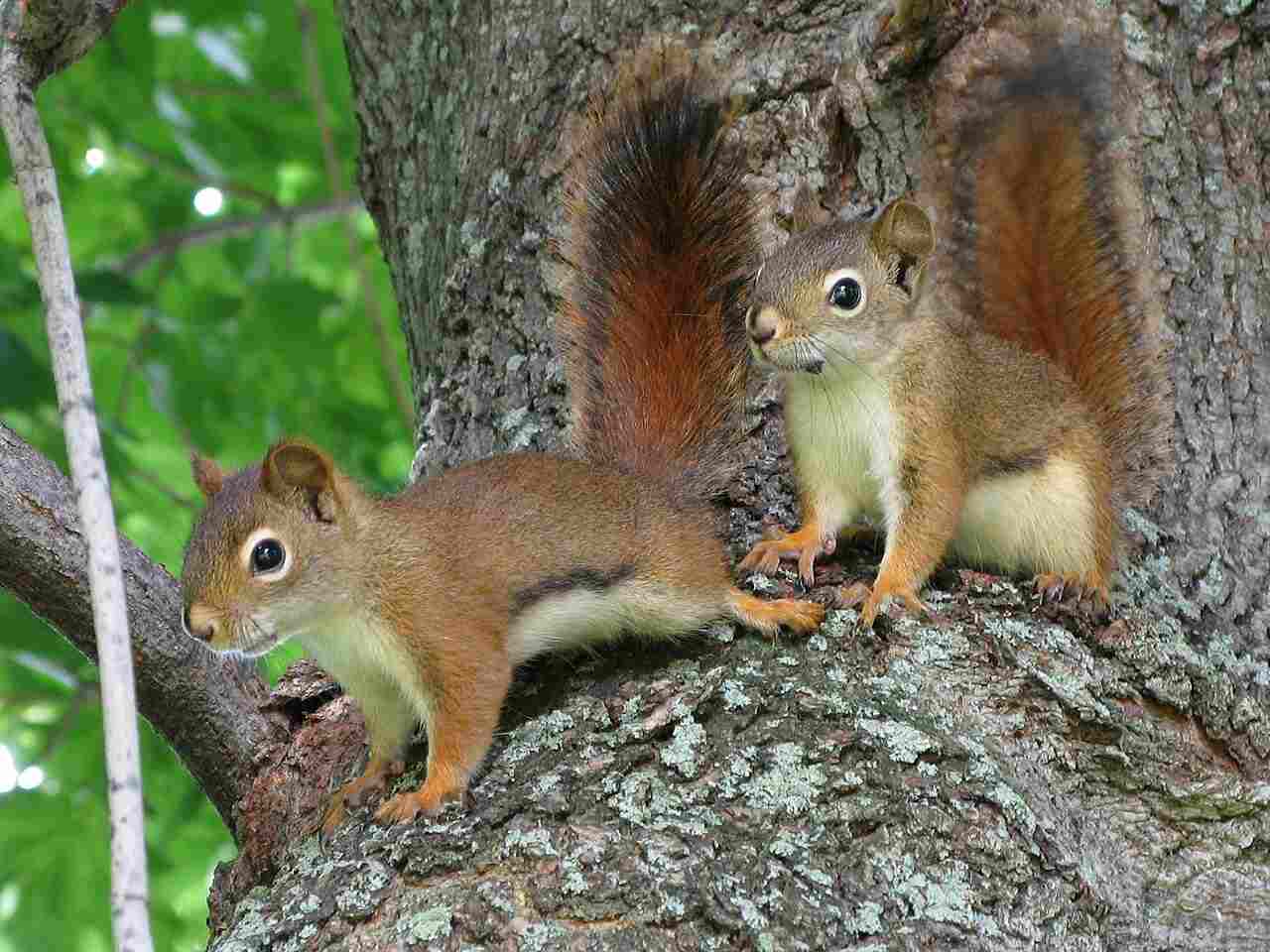
2. Possible causes of cannibalism among squirrels
There are several possible causes of cannibalism among squirrels. One of the main reasons is the scarcity of preferred food sources. When squirrels face a shortage of their usual diet of nuts, seeds, and foliage, they may resort to cannibalism as a means of obtaining the necessary nutrients. Cannibalism allows them to supplement their diet with protein-rich flesh, which can be crucial for their survival during times of food scarcity.
Another possible cause of cannibalism among squirrels is territorial behavior. Squirrels are known for being territorial creatures, and cannibalism can serve as a way for them to assert dominance and establish boundaries. By consuming the young or dead individuals of their own population, squirrels send a message to other squirrels in the area, indicating their strength and control over the territory.
Evolutionary causes may also play a role in squirrel cannibalism. Over time, certain squirrel populations may have developed a genetic predisposition towards cannibalistic behavior. This could be a result of natural selection favoring individuals who are more likely to engage in cannibalism during times of scarcity or as a means of reproductive strategy. Further research is needed to fully understand the evolutionary causes of squirrel cannibalism.
3. Effects of cannibalism on squirrel populations
The effects of cannibalism on squirrel populations can be significant. In some cases, cannibalism can help regulate population size. When resources are limited, cannibalism can reduce competition for food and territory, allowing the stronger individuals to survive and reproduce. This can lead to a more balanced population and prevent overpopulation in certain areas.
However, excessive cannibalism can have negative effects on squirrel populations. If cannibalism becomes too frequent or widespread, it can lead to a decline in population numbers. This is especially true if the cannibalism involves the consumption of infants, as it can significantly reduce the number of young squirrels that are able to reach adulthood and reproduce.
FAQs
1. What Kind of Animal Would Eat a Dead Squirrel?
An opportunistic scavenger is the kind of animal that would eat a dead squirrel. These scavengers include a variety of species such as foxes, opossums, raccoons, skunks, coyotes, vultures, and even snakes. Additionally, other squirrels have been known to engage in cannibalistic behavior by consuming the remains of dead squirrels.
Opportunistic scavengers are well-adapted to take advantage of available food sources, including carrion. When a squirrel dies, whether due to natural causes or predation, it becomes a potential food source for these scavengers. They play an important role in the ecosystem by recycling nutrients and preventing the spread of disease from decaying carcasses.
Foxes, opossums, raccoons, and skunks are known for their scavenging behavior and are often found in urban and suburban areas where squirrels are abundant. These animals have a diverse diet and will opportunistically consume a variety of food sources, including dead squirrels.
Coyotes, being opportunistic predators, will also scavenge on dead squirrels when the opportunity arises. They are known to have a broad diet and are capable of adapting to different environments.
Vultures, with their keen sense of smell, are attracted to the scent of decaying flesh. They play a crucial role in cleaning up carrion and are often seen circling in the sky, searching for potential meals.
Snakes, particularly larger species, may consume dead squirrels if they come across them. Snakes are known to be opportunistic feeders and will take advantage of any available food source.
It is worth noting that while these animals may eat dead squirrels, it is not their primary food source. They are more likely to consume live prey or other carrion when available. However, when presented with the opportunity, these opportunistic scavengers will not hesitate to make a meal out of a dead squirrel.
2. Do Squirrels Ever Eat Other Squirrels?
Squirrels are generally omnivorous animals, primarily feeding on nuts, seeds, fruits, and vegetation. However, there are instances where squirrels may engage in cannibalistic behavior and consume other squirrels. This behavior is more commonly observed in certain circumstances and can be influenced by various factors.
Infants and vulnerable adults are more likely to be targeted by cannibalistic squirrels. In times of scarcity or limited food availability, squirrels may resort to cannibalism as a means of survival. When resources are scarce, such as during harsh winters or when preferred food sources are limited, squirrels may turn to cannibalism to obtain the necessary nutrients.
Additionally, squirrels may eat the remains of dead squirrels. This behavior can serve as a way to recycle nutrients and prevent the spread of disease from decaying carcasses. By consuming the remains of dead squirrels, squirrels can benefit from the nutrients present in the carcass and reduce the risk of disease transmission within their population.
It is important to note that cannibalism among squirrels is not a common occurrence and is typically driven by specific circumstances. Squirrels are generally social animals and tend to live in close proximity to one another, but they typically do not view each other as a food source. Their primary focus is on foraging for plant-based food and ensuring their own survival.
3. Do Squirrels Carry Other Dead Squirrels?
Squirrels have been observed carrying the carcasses of other squirrels in certain cases. While this behavior is not common, it does occur in specific circumstances. When a squirrel comes across a dead squirrel, it may choose to move the carcass to a different location. This behavior can serve multiple purposes.
One reason squirrels may carry dead squirrels is to protect the carcass from potential predators. By moving the carcass to a safer location, the squirrel can reduce the risk of scavengers or other animals finding and consuming the remains. This behavior may also be a way for squirrels to claim ownership over the resources provided by the dead squirrel, such as food or nesting materials.
In some instances, squirrels may stay with the carcass for a short period of time. This behavior could be related to mourning or grieving the loss of a fellow squirrel. Squirrels are social animals, and the presence of a dead squirrel may elicit a response from other squirrels in the area.
It is worth noting that some squirrels may cannibalize the remains of dead squirrels. This behavior is more likely to occur when resources are scarce or during times of increased competition. By consuming the remains, squirrels can obtain additional nutrients and reduce competition for limited food sources.
4. Do Squirrels Eat Carcasses?
Yes, Squirrels are known to eat carcasses, and this behavior can be attributed to their opportunistic nature. When resources are scarce or during times of increased competition, squirrels may resort to consuming the remains of dead squirrels as a means of survival.
Squirrels are adaptable creatures and have a diverse diet that includes nuts, seeds, fruits, and insects. However, when their preferred food sources are limited, they may turn to alternative food options, including carrion. This opportunistic behavior allows squirrels to obtain additional nutrients and sustain themselves during challenging times.
It is important to note that squirrels are not obligate scavengers, meaning they do not solely rely on carcasses for sustenance. Their primary diet consists of plant-based foods, and the consumption of carcasses is more of a supplementary behavior. Squirrels are equipped with sharp incisors that enable them to tear into flesh, but this behavior is not their primary feeding strategy.
The consumption of carcasses by squirrels also serves as a way to reduce competition for limited food sources. By scavenging on dead squirrels, they can eliminate potential rivals and secure resources for themselves. This behavior is more likely to occur in densely populated areas where competition for food is high.
5. Will Squirrels Cannibalize?
Yes, squirrels are known to exhibit cannibalistic behavior in certain circumstances. This opportunistic behavior is more likely to occur when resources are scarce or during times of increased competition.
When their preferred food sources are limited, squirrels may resort to cannibalism as a means of survival. This behavior allows them to obtain additional nutrients and sustain themselves during challenging times. However, it is important to note that cannibalism is not a common feeding strategy for squirrels.
Squirrels primarily have a plant-based diet, consisting of nuts, seeds, fruits, and insects. Cannibalism is more of a supplementary behavior for them. Squirrels have sharp incisors that enable them to tear into flesh, but this behavior is not their primary means of obtaining food.
Cannibalism among squirrels also serves as a way to reduce competition for limited food sources. By consuming other squirrels, they can eliminate potential rivals and secure resources for themselves. This behavior is more likely to occur in densely populated areas where competition for food is high.
It is important to understand that cannibalism is not a regular occurrence among squirrels. It is a behavior that is triggered by specific circumstances, such as scarcity of food or increased competition. Squirrels are adaptable creatures and will primarily rely on their preferred plant-based diet for sustenance.
6. What is the Problem with Ground Squirrels?
Ground squirrels can pose several problems, making them a nuisance for farmers, gardeners, and homeowners. These rodents have a destructive nature and can cause damage to various aspects of their environment.
One of the main issues with ground squirrels is their ability to destroy tree roots, tubers, foliage, and nuts. They have strong teeth that allow them to gnaw through these plant parts, leading to significant damage to crops and vegetation. This can result in reduced yields and financial losses for farmers who rely on these crops for their livelihood.
Ground squirrels are known to be crop pests. They have a voracious appetite and can consume large quantities of crops, including grains, fruits, and vegetables. This can be particularly problematic for agricultural areas where these rodents are present in high numbers. Farmers often have to implement various control measures to protect their crops from these pests.
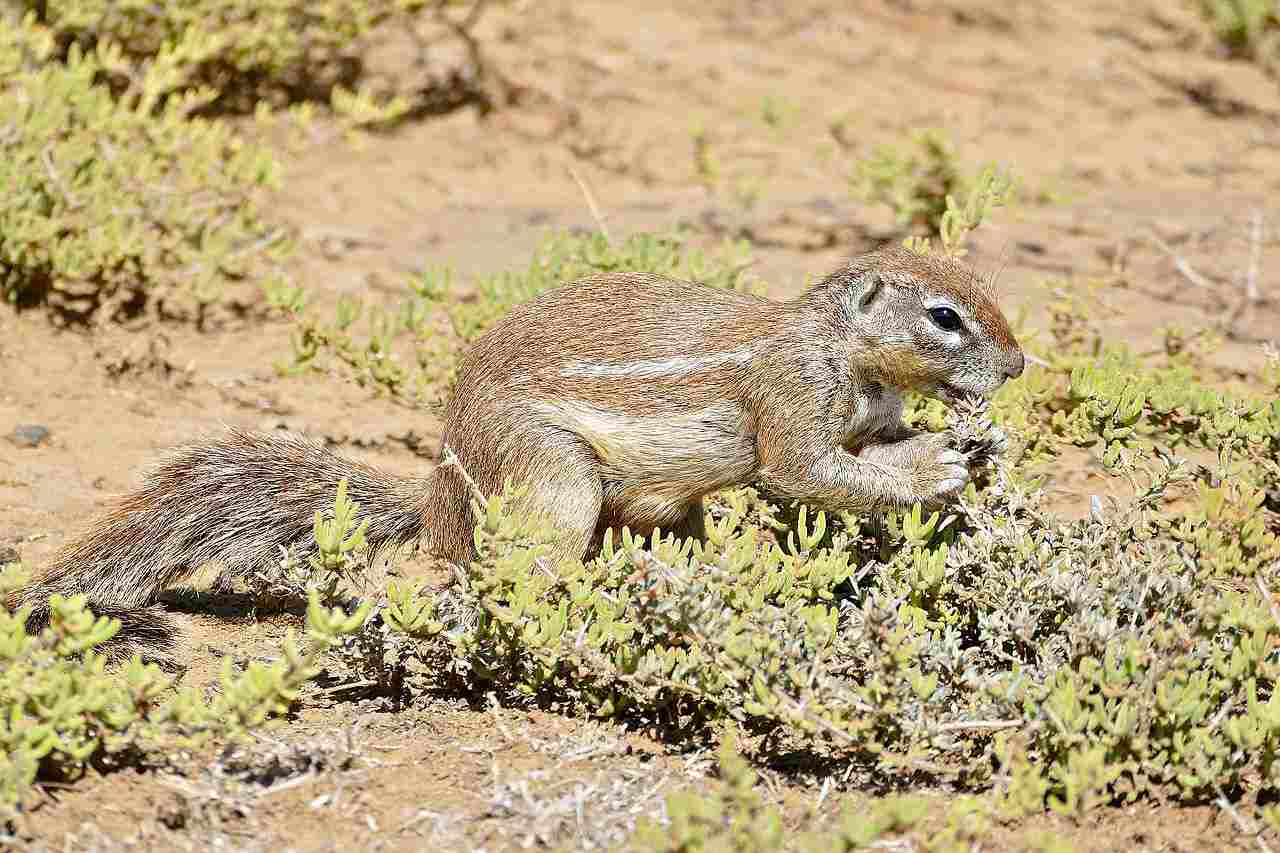
Another issue with ground squirrels is their tendency to chew on irrigation lines. These rodents have a natural instinct to gnaw on objects, and exposed irrigation lines are no exception. Their constant chewing can lead to punctures or leaks in the lines, resulting in water wastage and potential damage to the irrigation system. This can be a significant problem for farmers who rely on efficient irrigation to water their crops.
7. Do Squirrels Carry Their Babies?
Yes, squirrels do carry their babies, but they do not have a pouch like marsupials. Instead, they use their mouths to grip the infant by the scruff of the neck. This method allows the mother squirrel to transport her babies from one location to another, ensuring their safety and protection.
When the mother squirrel needs to move her babies, she carefully picks them up one by one and carries them to a new nest or den. By gripping the scruff of their necks, she can securely hold them without causing any harm. This instinctive behavior is essential for the survival of the young squirrels, as it keeps them close to their mother and away from potential predators.
It’s important to note that squirrels only carry their babies for short distances, typically within their immediate environment. Once they reach a safe location, the mother squirrel will release her grip and allow the babies to explore their surroundings. As the babies grow older and more independent, they will gradually venture out on their own, relying less on their mother for transportation.
Conclusion
* In this article, we have explored the topic of squirrel cannibalism and its various aspects. We started by questioning whether squirrels are cannibals and then delved into the reasons behind cannibalistic behavior in squirrels. We discussed the scarcity of preferred food sources, territorial behavior, and the role of cannibalism in mating strategies.
* We also examined whether squirrels eat other squirrels and if they consume dead squirrels. Additionally, we explored the cannibalistic tendencies of ground squirrels. Throughout the article, we provided an overview of important points related to squirrel cannibalism, addressing common questions and concerns.
* Generally, we have learned that while squirrels do exhibit cannibalistic behavior, it is primarily driven by factors such as food scarcity and territorial disputes. Squirrels may eat other squirrels, especially when resources are limited. However, they do not typically carry dead squirrels or engage in cannibalism as a regular part of their diet. Ground squirrels, on the other hand, are known to display more cannibalistic tendencies. Overall, understanding squirrel cannibalism provides valuable insights into their behavior and survival strategies in different environments.
